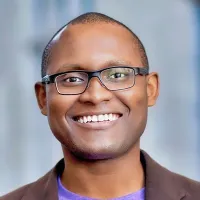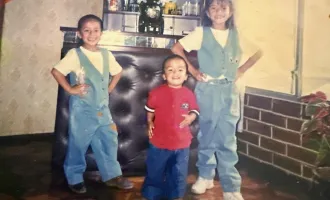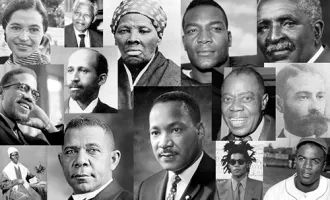
Photo courtesy of Unsplash
My Experience as a Black Man and Prospective Juror In San Francisco’s Hallowed Halls of Justice
It was a rainy and blustery Tuesday morning. Clutching a white, large-canopied umbrella, with rainwater splashing around my footsteps, I rushed into San Francisco’s (SF) Civic Center Courthouse, at 400 McAllister Street, near City Hall.
The bustling, reinvigorating energy, and pressure, of a typical, courthouse morning permeated the air, as busy lawyers, their concerned clients, and other interested parties made their way into the large, marble-gray building — with everyone independently playing their part in our city’s storied, and perhaps mired, orchestration of justice.
On this day, I was there to fulfill my civic duty as a juror: a responsibility I took and continue to take seriously, not only as a first-generation American but also as a member of the legal advocacy and UCSF communities.
Little did I know, however, that my experience would be an undesirably memorable one and would further persuade me of the need for radical change, particularly vis-à-vis representation and the lived experiences of Black, Indigenous, and People of Color (BIPOC) navigating our adversarial and often-unforgiving legal systems.
As I took my seat among the hundreds of prospective jurors present, I swiftly realized that not only was I part of an apparent minority, but I also appeared to be the only visibly Black SF resident in the room. Such a realization proved disconcerting and alienating, as such an extent of intentional, or reckless, exclusion struck me like a lightning bolt.
The presiding officer of the court, namely Judge Garrett L. Wong, a fourth-generation San Franciscan, long-time and award-winning jurist, as well as UPenn Law and Georgetown Law grad, embodied a paragon of professionalism. In a way that is worth remembering, he treated all prospective jurors with respect and patience, displaying a keen sense of efficiency in the management of his caseload.
Nevertheless, the racial disparity in the would-be jury pool of which I was part was palpable, leaving me feeling like a lone and neglected voice. As I sat there, I couldn’t help but wonder why the demographics before me were what they were, especially in a city as supposedly liberal as our own Paris of the West.
At that moment, it felt as if the courthouse’s stone walls, towering like imperious sentinels, were echoing the countless injustices they had silently witnessed over the years.
In a moment of somber retrospection, my experience at the courthouse led me to briefly examine SF’s legal system.
Accordingly, I found myself engrossed in subsequent research, where, to my dismay though not to my surprise, I unearthed a disheartening truth: that my unsettling experience was not a fluke but a manifestation of a well-known and deep-seated ethico-legal problem.
This socio-legal phenomenon enjoyed stark illustration in a 2017 piece penned by Vivian Ho titled, “For SF’s Black Defendants, It’s Hard To Find Jury Of Peers.” At its core, the article convincingly limns the systemic flaws haunting SF’s legal system, revealing the uphill battle faced by Black defendants in their barrier-laden pursuit of American justice.
For instance, this article depicts how Black people frequently face deprivation of a jury of their peers and are often at the mercy and judgment of jurors whose ranks have not reflected the diversity of the community they come from — tearing asunder the very notion of impartiality, a cornerstone of our criminal and civil legal systems.
This troubling reality gnawed at my conscience, as I re-evaluated my effectiveness in advocating for change. This disquieting truth was a harsh reminder of a persistent issue I had come across in my lived professional experiences and research. Having delved into the realm of juvenile detention and justice, e.g., in a monograph, I was already acutely aware of the systemic inequities that permeate our legal systems.
Over time, my understanding of this deep-seated problem expanded, allowing me to expose the destructive forces beneath its surface. Having previously written about these inequities, I’ve attempted to highlight the undeniable presence of racial bias within our legal system, the need for reform, as well as the impact this lack of representation has had on marginalized communities, particularly BIPOC in detention during their youth.
Furthermore, confronted with the cold, stark truth of being the only potential Black juror in an assembly of hundreds, the scales of justice suddenly seemed horribly unbalanced. Despite the fleeting discomfort and isolation, it was a re-awakening that could not be unexperienced, resolidifying my resolve to effectuate a profound transformation of our system, albeit limitedly and indirectly.
As a Black man preparing and hoping to permanently practice medicine, an arena often fraught with privilege differentials, I am no stranger to the challenges associated with race and representation. These challenges, combined with my experiences in the courthouse, accentuated the urgency of leveraging my lived and professional positions to fight for a more balanced and fair legal landscape, especially in ways that are outcome-determinative for my future patients.
From my personal and professional vantage points, there appear to be multiple promising paths toward implementing much-needed societal-legal change. Initially, ad rem conversation can start by raising awareness about the glaring underrepresentation within SF’s jury pools.
Employing the platforms of public discourse, initiating community dialogues, and amplifying our voices through the far-reaching capacity of the written word, can lead to a casting of a spotlight on this crucial societal issue. It is my hope, therefore, that my participation in these discussions will inspire a ripple effect, encouraging others to join the cause and further the momentum.
Next, we must turn our focus toward devising a more inclusive, accessible system of jury selection. This could involve scrutinizing the current processes of juror summons and seeking alternative strategies that would ensure a more diverse array of potential jurors. Alongside this, we need to fight for improved accommodations and compensation, making jury service feasible for a broader swath of society, irrespective of socioeconomic status.
Finally, we cannot underestimate the power of collaboration with local community organizations and leaders. Joining hands with these stakeholders would help enhance our cause and provide a robust thrust to our advocacy efforts. These partnerships could pool resources, combine expertise, and, together, we could devise and implement innovative solutions to foster civil and criminal legal systems that truly reflect our diverse society.
In toto, the memory of that day, finding myself to be a lone, would-be Black juror in a sea of faces, stung with disheartening loneliness. Yet, it has become the fuel to my unwavering commitment to effectuating societally-serving change, hopefully in the role of a physician-attorney who supports effective nonprofit organizations working in favor of a more just SF and America.
Fundamentally, I firmly believe that, through dedicated collaboration and the shared determination of like-minded individuals, we can usher in a judicial system in SF that is truly equitable and representative, ensuring that Black San Franciscan voices and lived experiences are genuinely acknowledged and valued.



